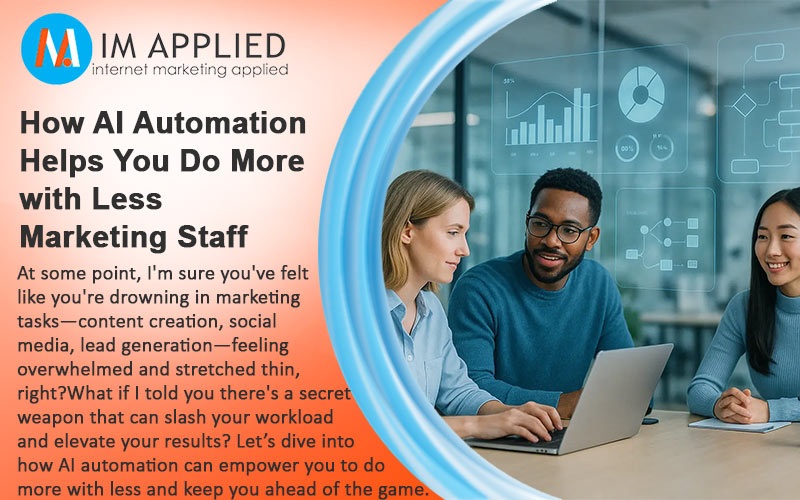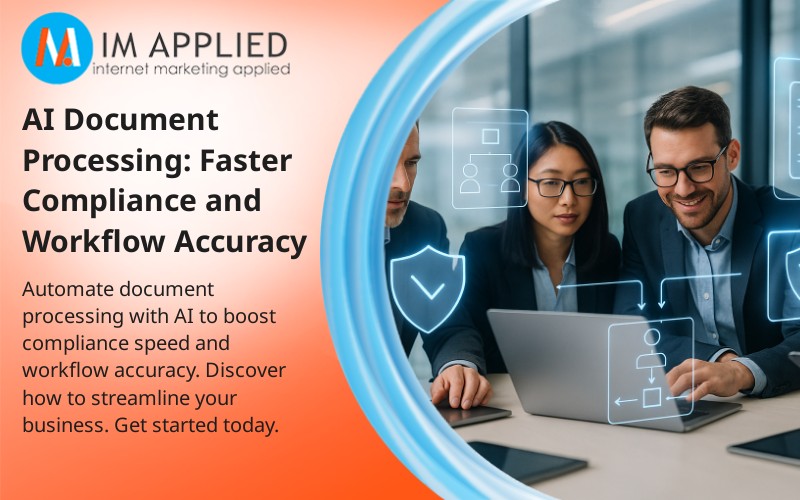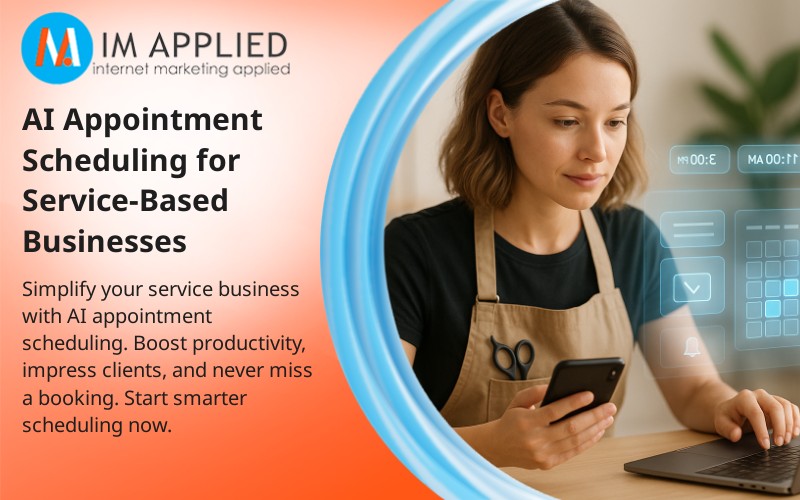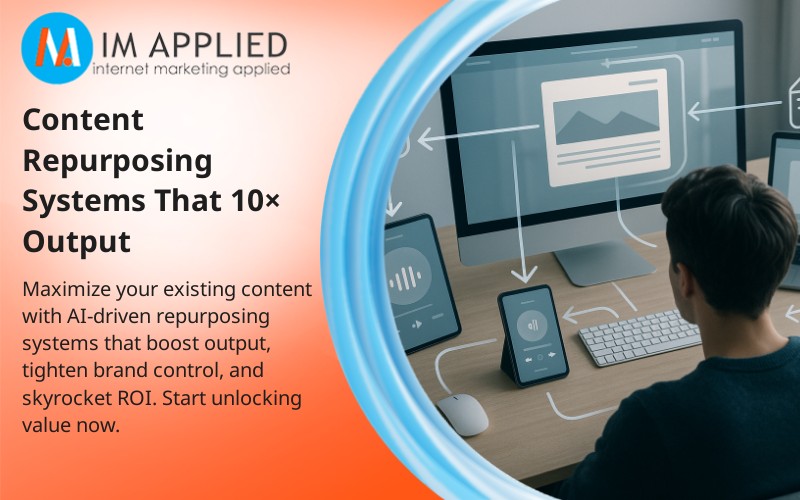How AI Automation Helps You Do More with Less Marketing Staff
Karl Marais | 23 May 2025
The Role of AI Automation in Modern Marketing
The fast pace of marketing means it’s tough to stay ahead of the curve. The tool that levels the playing field is AI automation—a strategic partner changing how marketers work. AI tools now optimize workflows, reduce errors, and allow you to focus on strategic thinking and creativity. Intelligent automation lets you target and personalize communications with greater precision, driving better engagement and efficiency.
AI marketing solutions process massive amounts of data, extracting actionable insights. This enables you to understand consumer behavior at a granular level. As AI trends reshape the industry, companies are evolving quickly to maintain their edge. Notably, the broad impact of AI on decision-making—like its influence on SEO strategies—demonstrates just how far AI integration has come.
Understanding AI’s Place in Marketing
AI in marketing is now a cornerstone for smart innovation. It leverages algorithms and data to streamline tasks, enhance accuracy, and personalize the customer experience. Forget guesswork; AI highlights patterns, predicts future trends, and helps tailor outreach in real time.
Businesses benefit from deploying resources where they’re needed most, using AI to scale personalization and deliver relevant content efficiently. This kind of integration ensures marketers stay relevant, competitive, and better equipped to deliver on customer expectations.
Advantages of Leveraging AI for Marketing Tasks
The main perks of AI in marketing go beyond convenience—it’s about boosting ROI and redefining efficiency. By automating data analysis, segmentation, and even some creative tasks, AI saves time and directs attention to initiatives that drive growth.
AI tools identify high-value prospects, optimize marketing spend, and nurture leads more effectively. The bottom line: AI helps you do more with fewer resources, offering a solid case for its adoption. For a closer look at how it helps your bottom line, check out how AI predicts customer behavior and boosts conversions.
Where AI Replaces Routine Marketing Tasks
AI is transforming marketing departments by taking over time-consuming tasks—data analysis, segmentation, and feedback processing—so your team can refocus on strategy. Modern AI software integrates with existing systems, reducing the need for extra staff while delivering consistent, high-quality results.
Automated Content Creation and Management
AI content tools now generate blog posts, articles, and social media updates that align with your brand voice. With AI content automation, marketers maintain a consistent publishing schedule while reducing manual effort. This ensures quality output and alleviates content bottlenecks. Interested in the synergy between AI and creativity? See how AI complements human creativity.
Enhancing Social Media Strategies with AI
AI simplifies social media management—from scheduling posts to analyzing audience engagement. Sentiment analysis and trend detection mean your brand connects authentically and responds quickly. With automated listening and reporting, social media shifts from a resource sink to a strategic asset.
Streamlining Lead Generation Processes
Generating and nurturing leads has never been easier. AI tools can identify, score, and qualify prospects, delivering personalized messages based on real-time data. Marketers now focus on the most promising leads, increasing conversions. Learn more about AI-powered lead scoring systems.
AI Personalization: Elevating Customer Experience
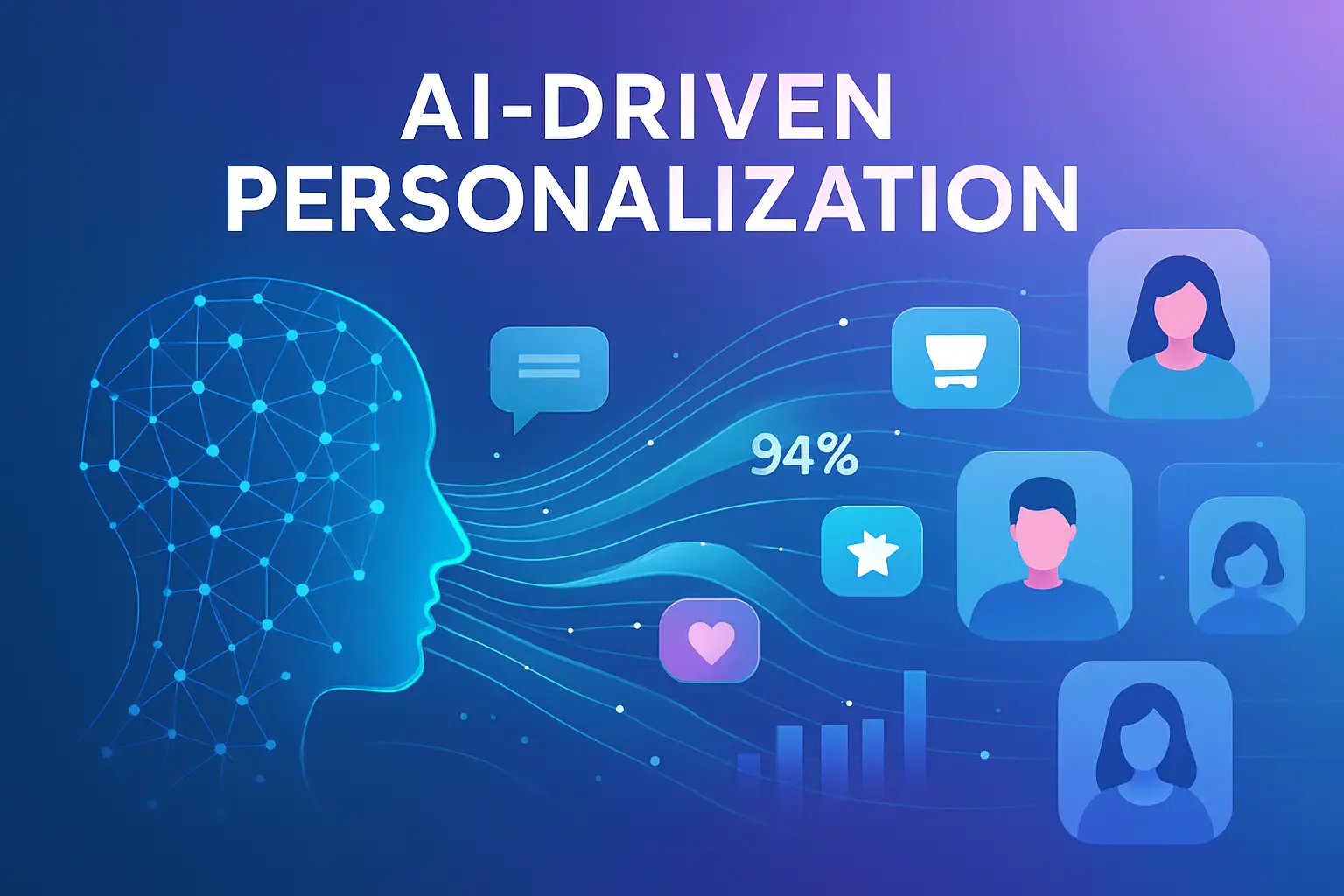
AI-powered personalization enables companies to deliver bespoke customer journeys. By analyzing behavioral data, AI helps marketers send relevant emails, suggest tailored products, and provide unique experiences that make customers feel valued.
Audience segmentation becomes much more accurate through analytics, ensuring your messages land with the right people at the right time. Brands leveraging AI personalization report better engagement and improved loyalty.
Personalization Techniques in Action
Leading brands use algorithms to recommend products or content—think of Netflix or Amazon predicting what you’ll like next. Marketers continually test and optimize AI models to keep messaging fresh and relevant. Tactics like dynamic content, predictive browsing paths, and individualized campaigns not only boost user engagement but have become market expectations.
Real-Time Segmentation and Interaction
AI doesn’t just segment audiences—it does so continuously. Real-time adjustments mean campaigns react instantly to changes in customer preferences, maximizing engagement and conversion rates. Platforms that unify touchpoints enable seamless interactions, helping your brand stand out as adaptive and responsive.
Supercharging Analytics with AI
AI marketing analytics now turn mountains of raw data into actionable insights, nearly in real time. Automated collection and analysis mean less manual number-crunching and more focus on strategic decision-making.
From Data to Insights
AI systems aggregate info from multiple sources, uncovering trends and informing campaign tweaks. Even lean marketing teams gain the analytical depth once reserved for larger enterprises, resulting in sharper, more effective campaigns.
Predictive Analytics for Smarter Decisions
AI doesn’t just explain what happened—it predicts what’s ahead. Marketers can anticipate shifts and adjust strategies proactively, building stronger campaigns driven by data rather than gut feeling. Curious about real-world impact? Explore AI’s impact on SEO strategies.
Balancing AI with Human Creativity

The future is about synergy. AI excels at analytics and automation, but human marketers provide the creativity, empathy, and strategic vision that machines can’t replicate. The best results come from human-AI collaboration—using data-driven insights to fuel creativity.
Ethical considerations matter. Responsible use of AI protects privacy and maintains brand authenticity, cementing customer trust. For more, read on achieving the right balance between AI and human creativity.
Harmony in Action
Great marketing taps both AI’s processing power and human inspiration. Marketers use AI to surface insights, freeing up time for conceptual breakthroughs and nuanced messaging. The most competitive teams will promote this collaboration, allowing each side to play to its strengths.
Building a Sustainable AI-Driven Marketing Strategy
An effective AI marketing strategy starts with understanding where AI can provide the most value. Leaders should automate repetitive work (like data collection or segmentation) to free up humans for tasks that require critical thinking and creativity.
Ongoing adaptation is key. Strategies should evolve with technology, leveraging new advancements and continuously refining processes. For an in-depth exploration, see this guide on AI’s impact on SEO strategies.
Overcoming Challenges When Using AI in Marketing
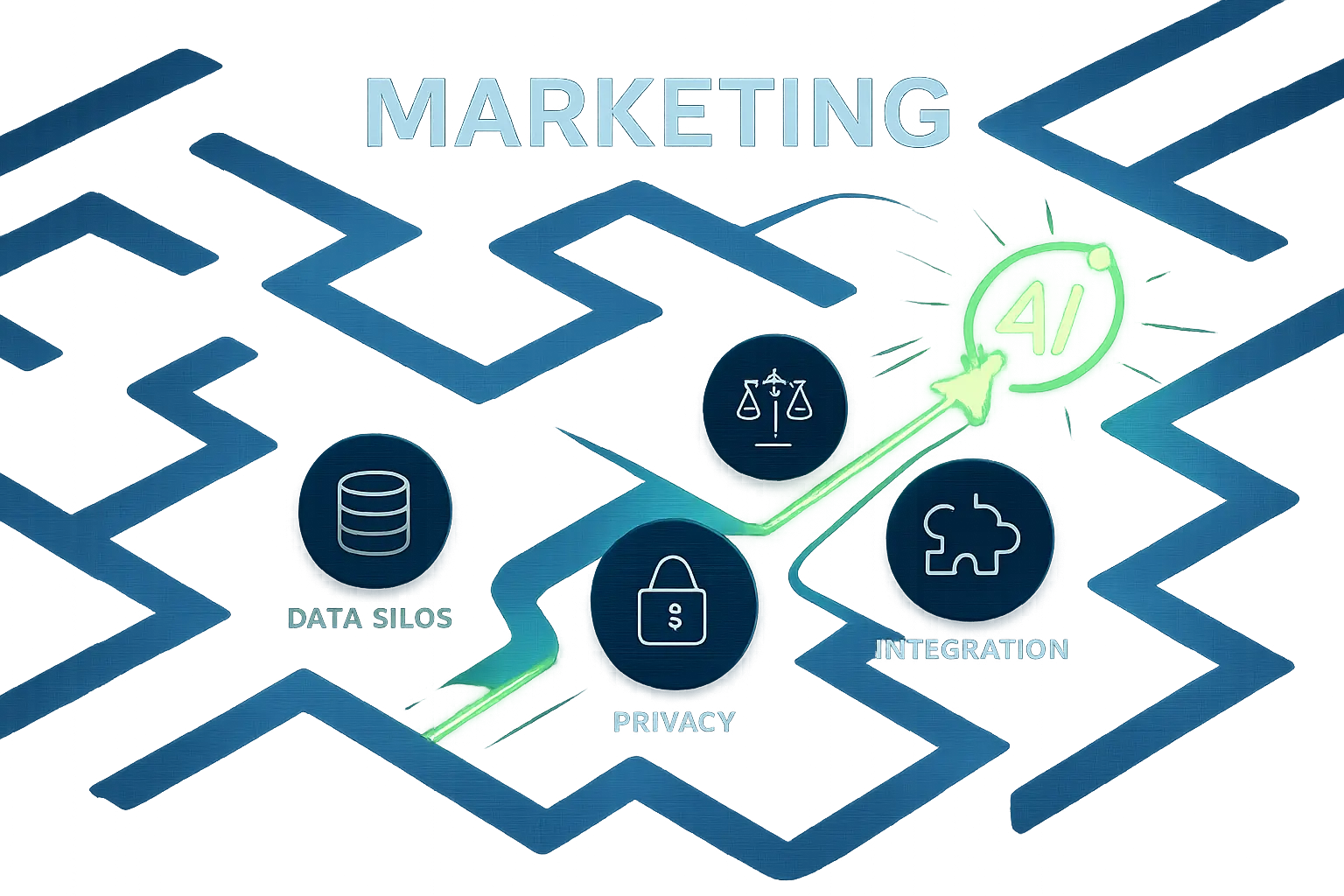
Adopting AI brings hurdles—primarily around integration, ethics, and team mindset. AI isn’t a magic solution; its success depends on realistic implementation and ongoing education. Ethical deployment safeguards privacy and builds trust, so transparency is non-negotiable.
Companies must dispel myths about job loss—AI automates tedious work, but humans remain essential for strategy and creativity.
Training and Developing AI-Savvy Teams
Upskilling is vital. Marketers need practical knowledge of AI tech alongside openness to innovation. Training programs and workshops demystify AI, cultivating adaptability and collaboration.
Companies that invest in developing their teams position themselves as industry leaders and future-proof their operations.
The Future of AI in Marketing & Its Impact on the Workforce
As AI continues to evolve, marketing roles become more strategic and creative, with technology handling repetitive work. Adaptation is vital: marketers must upskill, focusing on analytics, ethical use, and management of AI-powered tools.
The transformation won’t eliminate marketing jobs—but it will shift focus toward areas where humans bring unique value. For more on the changing landscape, read about AI’s effects on SEO and content planning.
Looking Ahead
Expect continued advances in personalization, automation, and customer experience. AI will drive predictive analytics and tailored campaigns, ensuring brands remain agile and relevant. Marketers who harness these tools will lead the industry.
Takeaway for Marketing Pros
AI challenges marketers to rethink their roles—but those who embrace it focus on creativity, strategic thinking, and relationship-building. Upskilling and agility are the keys to remaining indispensable as AI becomes a permanent fixture in modern marketing.
By striking the right balance between AI automation and human creativity, you ensure your marketing stays both innovative and resonant in a fast-changing landscape.

